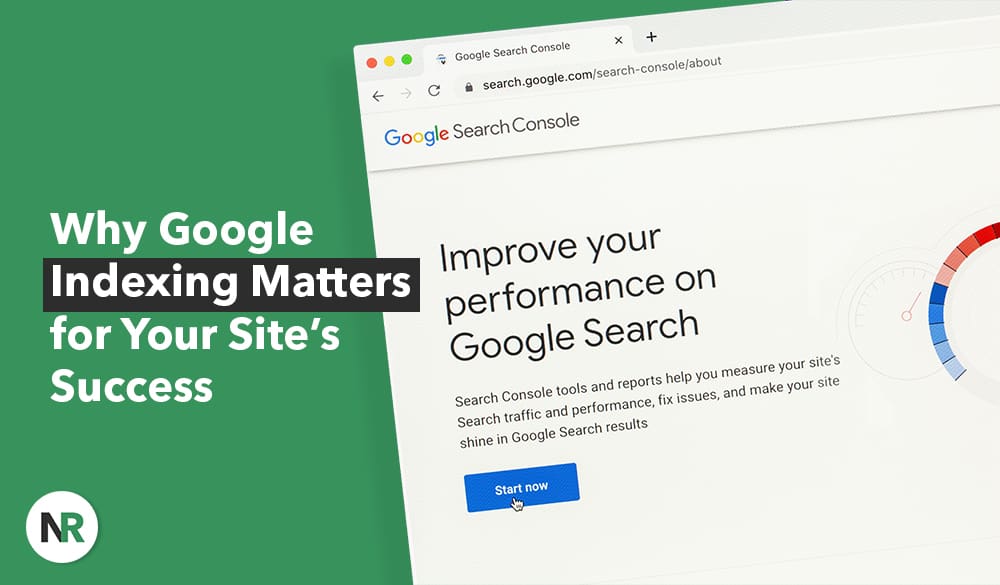Grasping the concept of Google indexing is crucial for boosting your website’s visibility and performance. It’s the process that helps search engines discover and organize your content, ultimately improving rankings and driving more traffic to your site.
What Is Google Indexing?
Google indexing is the process where Googlebot, Google’s web crawler, discovers, analyzes, and stores information about web pages. This process is crucial for SEO, as it ensures your content is correctly cataloged, making it easier for Google to retrieve and rank it. By optimizing your site through methods like sitemap and URL submission, you can improve indexing and make sure your pages are found and ranked, helping to grow your online presence.
Why Is Google Indexing Important for Your Site?
Increases Visibility on Search Engines:
Proper Google indexing boosts your website’s visibility on search engine results pages (SERPs), making it easier for potential customers to find your content. Indexed sites typically rank higher, attracting more visitors and encouraging better engagement, which can lead to higher conversion rates.
Improves Website Traffic:
Effective indexing helps increase traffic by ensuring well-optimized pages appear in search results. Techniques like prioritizing key pages, removing duplicate content, and updating XML sitemaps can further maximize traffic and improve your search rankings.
Helps in Ranking on Search Engine Results Pages (SERPs):
Google indexing plays a key role in improving your rankings by ensuring URLs are indexed and visible on SERPs. By monitoring your indexing status and optimizing for mobile-friendliness and speed, you can improve your site’s visibility, click-through rates, and rankings.
Get started with your free reputation evaluation today
How Does Google Indexing Work?
Crawling:
Crawling is the first step in Google indexing, where Googlebot navigates the web using links and sitemaps to discover pages. Optimizing your crawl budget ensures that important content is indexed and ranked. Strategies like URL inspection, sitemap optimization, and effective internal linking help improve crawling efficiency.
Indexing:
After crawling, Google analyzes your content during the indexing phase. Google evaluates factors like content quality, keyword usage, and user experience to determine relevance for search queries. To improve your indexing chances, ensure your content is high quality, well-optimized with keywords, and mobile-friendly.
Ranking:
Ranking is the final step, where indexed pages are sorted based on their quality and relevance to search queries. SEO strategies such as keyword research, responsive design, content quality, and backlinks influence rankings. These efforts directly impact visibility and organic search performance.
What Are the Factors That Affect Google Indexing?
Website Design and Structure:
A well-organized website layout enhances crawling efficiency. Clear headings, consistent URL structures, and logical internal linking help search engines better understand your site’s hierarchy, making it easier to index important pages. A user-friendly design also reduces bounce rates, increases engagement, and boosts conversions—especially for local businesses.
Content Quality and Relevance:
Quality content is critical for indexing success. Search engines prioritize content that is informative and engaging. Thin or irrelevant content tends to be ignored. To improve your indexing chances, provide valuable, relevant content and incorporate multimedia, while using keywords naturally to build trust with your audience.
Keyword Usage:
Using the right keywords helps search engines understand your content. Conduct thorough keyword research to find terms that resonate with your audience. Use keywords naturally throughout your content, titles, and meta descriptions. Additionally, using variations and synonyms can enhance relevance and make your content easier to discover.
Backlinks and External Links:
Backlinks are essential for building trust and credibility with search engines. When authoritative sites link to your content, it signals to Google that your content is valuable, which can improve rankings. Focus on creating high-quality, shareable content and engage with influencers or other reputable sites to build backlinks.
How Can You Improve Your Site’s Google Indexing?
Create Quality Content:
Focus on producing valuable, relevant content that aligns with your SEO goals. Use keywords naturally to improve visibility, and make sure to post consistently to keep your site active, signaling relevance to search engines.
Optimize for Mobile Devices:
Mobile optimization is essential, as over half of internet traffic comes from mobile devices. Ensure your site is responsive and loads quickly to improve the user experience and make it easier for search engines to crawl and index your pages.
Use Keywords Effectively:
Conduct keyword research to discover terms your target audience is searching for. Integrate these keywords into your content, titles, and meta descriptions to improve your site’s discoverability and ranking.
Build Backlinks and External Links:
Backlinks from trusted sources help signal credibility to search engines. Create valuable, shareable content and engage with influencers or industry leaders for guest blogging or link-building opportunities. This boosts your site’s visibility and helps with indexing.
By submitting your sitemap, creating high-quality content, optimizing for mobile, using keywords effectively, and building backlinks, you can significantly improve your site’s Google indexing and visibility in search results.
